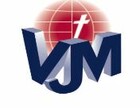Citing Your Sources
What is a citation?
A citation is a reference to the sources of the idea, information or image that you have used. A citation usually includes identifying information such as author, titles, publication format and date. This allows your reader to access the original source.
Why do we cite our sources?
Citing the sources you use in your research gives credit to the original source. Citing is a way of sharing information, letting your readers knows where you accessed your information. Students who cite also set an example of integrity and skill as a responsible student. Citing your sources prevents plagiarism.
Types of citation
There are various ways to cite your information. The most popular methods are MLA (Modern Language Association), APA (American Psychological Association) and Chicago. At our school, we are using the APA method.
When do I need to cite my sources?
- When you use a direct quote of more than one word.
- Paraphrasing or summarizing someone else's ideas or work.
- Information that may be common knowledge but may be unfamiliar to your reader.
- If you are wondering about citing, err on the side of caution and cite!
What types of materials need to be cited?
- Books
- Articles (from print sources or from online article databases)
- Interviews
- E-mail or any other correspondence
- Web pages
- Government documents
- Non-print media (videotapes, audiotapes, pictures and images)
- Software or any digital formats
Source Bibliography should look like this:
References
“Catherine De Medici Biography.” Encyclopedia of World Biography,
www.notablebiographies.com/Ma-Mo/Medici-Catherine-de.html.
“Catherine de’ Medici.” Historic World Leaders, edited by Anne Commire, Gale,
1994. World History in Context, link.
galegroup.com/apps/doc/K1616000175/WHICH?u=alberta12&xid=bbed6027.
Accessed 15 Jan. 2018
Fitton, Avis, et al. Worldviews: Contact and Change. Pearson Education Canada, 2007.
Medici, Catherine de’. Image. Britannica School, Encyclopaedia Britannica,
31 Oct. 2017 School.eb.com/levels/middle/assembly/view/151021.
Accessed 15 Jan 2018.
Ovo, n.d., Catherine De Medici [video file]. Retrieved from
www.ovo.com/en/catherine-de-medici
Here are some basic formats in APA style. For more types of formats or more detail please go to
The Purdue Online Writing Lab
Book or textbook
Citation elements required and general format:
Author(s) or editor(s). (Year). Title of book: Subtitle of book(Edition). City, State
abbreviation or Country of publication: Publisher.
Example of more than one author:
Fitton, Avis, et al. Worldviews: Contact and Change. Pearson Education Canada, 2007.
Website
Citation elements required and general format:
Author(s). (Year). Title of web page or document: Subtitle[Format].
Retrieved from URL that goes directly to the document
Example:
“Catherine De Medici Biography.” Encyclopedia of World Biography,
www.notablebiographies.com/Ma-Mo/Medici-Catherine-de.html.
Images
Citation elements required and general format:
Creator(s)of the image or artwork [Screenname if applicable]. (Year image was created, Month Day if available).
[Description] OR Title of image or artwork [Type of work]. RetrievedfromURL
Example of Artwork, one creator:
Van Gogh, V. (1889). The starry night [Painting].
Retrieved from http://www.vangoghgallery.com/catalog/Painting/508/Starry-Night.html
Video
Citation information required and general format:
Name of Producer(s)or Director(s). (Responsibility such as Producer or Director). (Year, Month Day of production).
Title of streaming video: Subtitle of streaming video.[Video]. Retrieved from URL
Example
The Chateaux of the Loire [Video file]. (1993). Retrieved January 15, 2018,
from https://cvod.infobase.com/PortalPlaylists.aspx?wID=237255&xtid=2673

